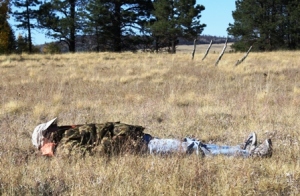
In the natural realm we are born, we grow up, we reach physical maturity, some time around age 14 – 20, then we spend time perfecting skills and abilities that go with physical maturity and finally we begin to decline. In the mental or character realm, maybe we continue to understand new things and even change our behavior accordingly for many years, but inevitably those aspects also begin to decline.
In the natural realm then, growth is finite. It begins, continues for a time and then, reaching maturity, stops.
Our school systems and job training programs follow the same pattern. The child enters, learns the subject matter — say reading, writing, basic math, a bit of history and science — and then he “graduates”. He has now been declared proficient and a master at the subjects he began to learn years ago. And in those basic realms there is really no more left to learn, the skills learned in childhood and youth serving many people well for the rest of their lives.
Of course institutions of alleged higher learning exist for the purpose of enabling people to continue to learn about a subject beyond the basics, (though sadly many of those institutions no longer offer courses of study that are truly profitable to their students, though that’s a subject for another day) but I wonder how many people, even college graduates eventually come to a point where they believe they have “learned enough” and now know everything they need to know about a particular subject.
I’d guess a lot of them. Rush Limbaugh likes to say that in general people think that history began the day of their birth, and as a result they know little of anything that happened before their arrival.
George Santayana said, “Those who can not remember the past are condemned to repeat it.” While Friedrich Hegel observed, “The only thing we learn from history that we learn nothing from history!”
I’m not convinced that knowing more history would solve our problems, because I believe our problems arise from the fact that we are fallen people living in a fallen world, that is administered by fallen creatures who have no ability to administer anything very well… but that’s another matter, too.
But at least some of our problems as a nation certainly arise out of too many people just not knowing enough about the right kinds of things to be able to make the kinds of decisions they need to make. To have the discernment they need to have.
And the most important lack of knowledge, I think, is spiritual.
How many Christians, I wonder, reach a point where they think they’ve learned all they need to know about God and the spiritual life? Or, all they need to know about the Bible?
People who’ve believed in Christ, who know they are eternally secure in their salvation, know some basic rules for correct “Christian” or “moral” behavior, and some basic promises for times of trial — and with that think they’re set.
They have only to go about living their Christian lives in accordance with those parameters. This is who I am, this is who God is, this is what the Christian life is about and what I am to do, and I have it down pat. If X happens, I do Y. If I want A to happen, I do B. The spiritual formula: if I just make the right applications everything will go well.
On some level I used to think like this. God is disabusing me of this notion. The more I learn it seems, the more I realize I don’t know. The more I read the Bible, the more I see things I never saw before — the same passages, only now there is a new light, a different angle, sometimes subtle, sometimes profound and shocking. How could I have not seen that before?! It’s right there.
I’m finding that going back over the same ground, whether in Bible class or just in my thinking, brings increasing light. I may grapple with the same issues time and again. Wrestle with a concept, come to a conclusion, a new way of thinking or doing, go off to practice it and then, some time later, be back at it again. Well, what I’d thought was sorta right, but not entirely. And now I have to rethink it. Or maybe God has to retell me, in a slightly different way, because I’ve come maybe a baby step along the path toward true understanding, and now it’s time to take another baby step.
It’s funny to think you can just study it and get it down like you might history or biology. This is God we’re talking about. Creator of the Universe. The one who has no beginning or end. The one who holds all things together in His mind, whose thoughts are not like our thoughts and ways are not like our ways.
We take that so blithely. Oh yeah. God’s thoughts aren’t like ours. His ways aren’t like ours… and then we just go on, as if it didn’t matter. As if we can still understand Him as easily as we understand our friends or the people next door (which should be a clue since I’d guess in most cases we probably don’t. Shoot, we don’t really even understand ourselves, let alone other people).
We — or, maybe I should just say “I” here — treat Him as if He’s just a big, very smart, very old, very clever man. When He’s not!
People will pour out their lives studying some element of His creation ( finger work on His part) and yet scrimp on studying the Word He’s given us to tell us who He is. And we think we can just read it through once or twice and get it. Would we think we could come to a practical understanding of neuroscience by reading a textbook now and then? Select the most technical,learning-intensive, difficult-to-comprehend subject you can think of and then realize it can’t even come close to God.
No. I’ve come to believe it’s not only a lifelong journey toward understanding God and how we’re to serve Him, a very slow, crawling, micro-incremental, struggle to grasp and hold kind of journey, but one worthy of devoting our entire lives to. One that we will never reach the end of in this life and, I’m pretty sure, not even in eternity.
Like this:
Like Loading...






